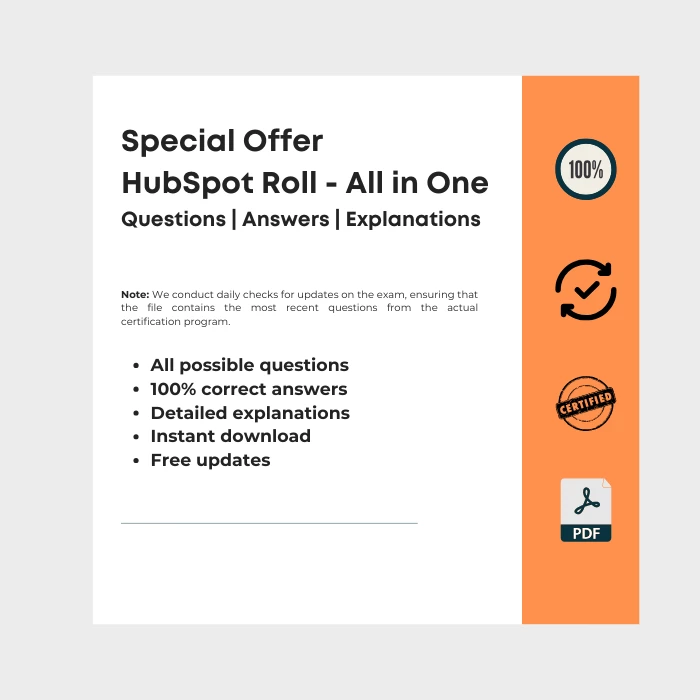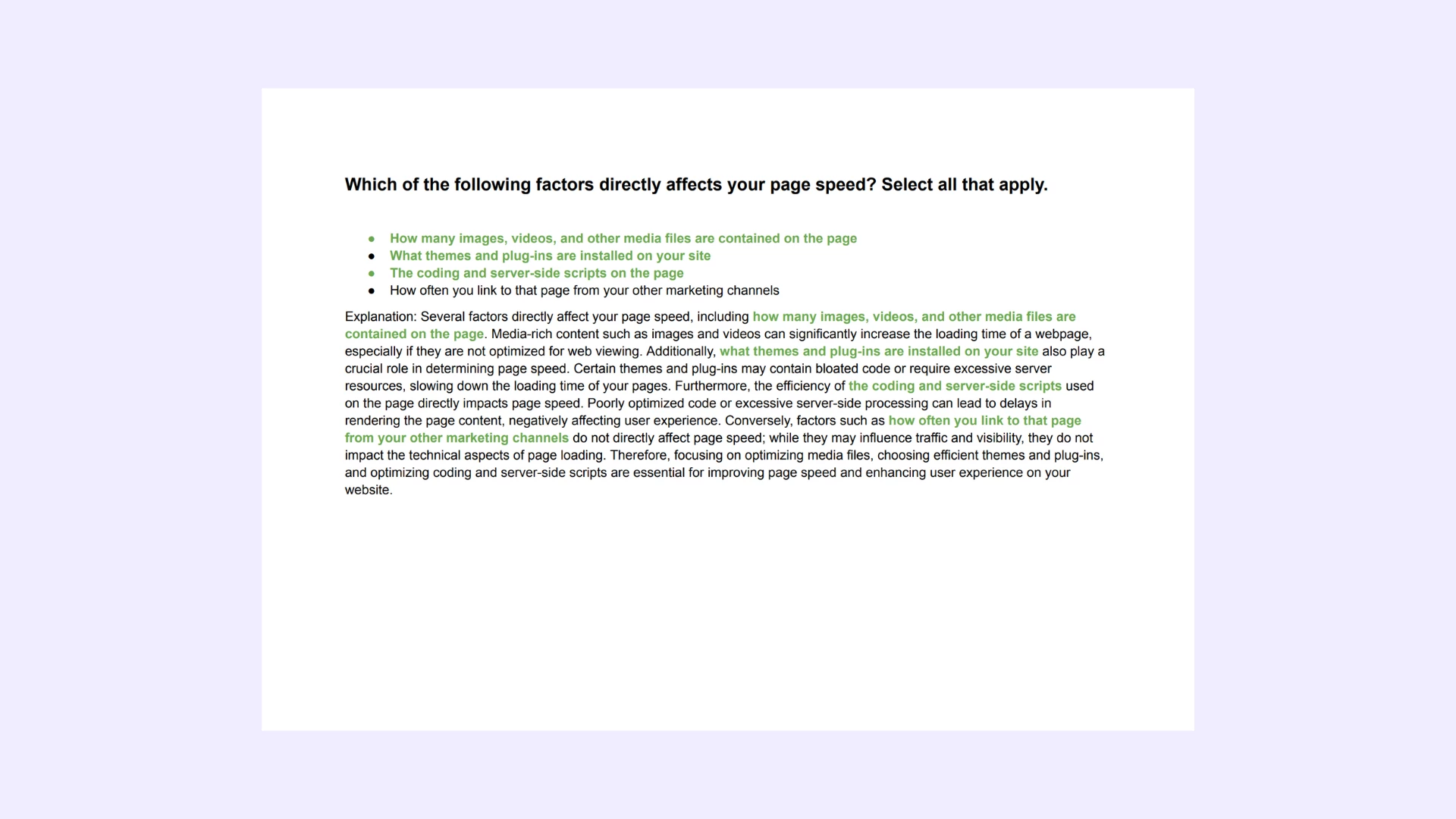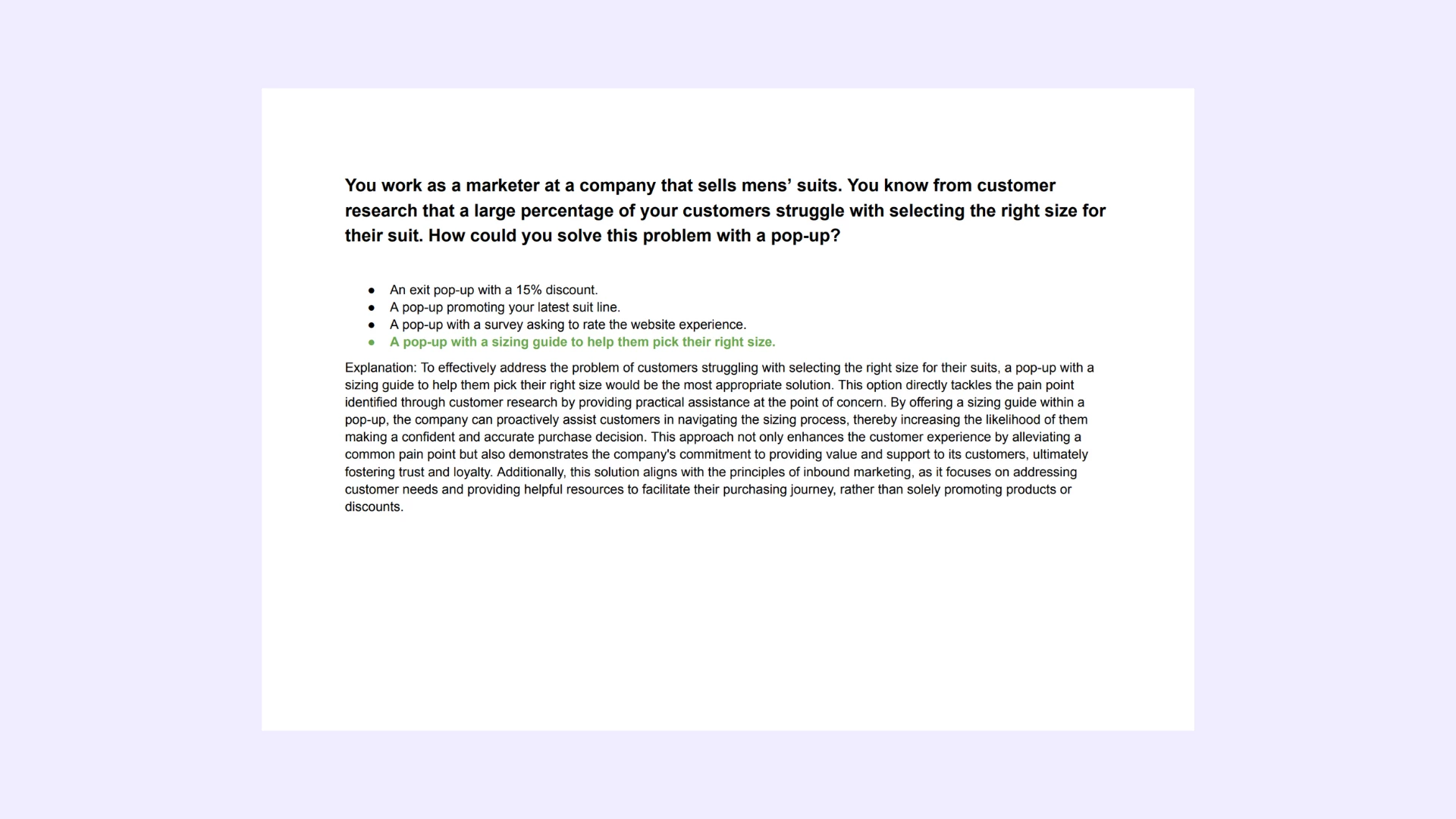When would it be beneficial to have a different title tag than your heading tag?
When your heading doesn't accurately describe the contents of the page
When your heading is too long and will get cut off in search engine results
When your title is more interesting than your heading
Never, the two elements should always be the same

HubSpot Roll. Includes Answers for Every Real HubSpot Certification Exam.
All-in-One: Get all HubSpot exams answers with explanations in one bundle. This package includes answers for every current HubSpot certification. Regular updates to reflect the latest exam version. -> See what's included.


Need a single cerification exam answers? Check out our -> list of certification exams answer keys. Learn Smarter. Obtain or Renew your certificates with peace of mind!
Explanation: When would it be beneficial to have a different title tag than your heading tag?
Explanation: The correct answer is **When your heading is too long and will get cut off in search engine results**. Title tags and heading tags serve distinct purposes in website optimization, and there are scenarios where having a different title tag than the heading tag can be beneficial. Title tags appear as the clickable headline in search engine results pages (SERPs), and they play a crucial role in attracting clicks and conveying the content of a webpage to users. However, search engines typically display only a limited number of characters for title tags, and if the heading tag is too long, it may exceed this limit and get truncated in search results, leading to a poor user experience and potentially diminishing click-through rates. In such cases, crafting a concise and descriptive title tag that accurately summarizes the content of the page while fitting within the character limit ensures that users can see the full title in search results and understand what the page is about. Therefore, having a different title tag than the heading tag can be beneficial when the heading is too long and risks being cut off in search engine results, allowing for better visibility and clickability in SERPs while maintaining accuracy and relevance in conveying the page's content.

Special Bundle Offer HubSpot Roll. All in One
Note: We conduct daily checks for updates on the exam, ensuring that the file contains the most recent questions from the actual certification program.
Questions | Answers | Explanations. FREE Updates.
You may also be interested:
- Special HubSpot bundle offer - all HubSpot exams in one
- HubSpot CMS for develpers certification exam answers
- HubSpot CMS for develpers II certification exam answers
- HubSpot content hub for marketers certification exam answers
- HubSpot content marketing certification exam answers
- HubSpot contextual marketing certification exam answers
- HubSpot digital advertising certification exam answers
- HubSpot digital marketing certification exam answers
- HubSpot email marketing certification exam answers
- HubSpot frictionless sales certification exam answers
- HubSpot growth driven design certification exam answers
- HubSpot inbound certification exam answers
- HubSpot inbound marketing certification exam answers
- HubSpot inbound marketing optimization certification exam answers
- HubSpot inbound sales certification exam answers
- HubSpot integrating with HubSpot I foundations certification exam answers
- HubSpot marketing hub software certification exam answers
- HubSpot reporting certification exam answers
- HubSpot revenue operations certification exam answers
- HubSpot sales enablement certification exam answers
- HubSpot sales hub software certification exam answers
- HubSpot sales management certification exam answers
- HubSpot sales software certification exam answers
- HubSpot seo certification exam answers
- HubSpot seo II certification exam answers
- HubSpot service hub software certification exam answers
- HubSpot social media marketing certification exam answers
- HubSpot social media marketing II certification exam answers